Oscar Special: Best Picture Nominees Reviewed and Ranked
Alarmed beyond measure by Jennifer Lawrence's confession that she watched only 3 minutes of Phantom Thread before marking her Oscar ballot, I decided to do what that philistine did not, and watch all of the Best Picture nominees by March 4th. I may not be a filmmaker (yet?), and I may not have a vote (someday?), but I shall have my consolation: my opinions.*
Now, ranked and reviewed (or linked to my previous review), I present the 2018 nominees for Best Picture, an incredibly strong year, ranked only with exquisite difficulty.
*Note that I do try to avoid spoilers, but many of these I write with the idea that you've either seen the film, or have some knowledge of what it is about.
9. Darkest Hour

 Okay, the exquisite difficulty starts later, this was the only film easy to rank. It isn't bad, in fact at times it is wonderful, and as a whole movie, it is a greater success than The Iron Lady. Still, I, Tonya was a better, more ambitious film, and it is a travesty it was not nominated for Best Picture, while this more conventional portrait was. Gary Oldman gives a brilliant portrayal of Churchill, I just wish they showed more of the darkness in him instead of the oddball uncle mythologizing. But it's undeniably a great performance in a good biographical story, of the genre (like The King's Speech) the Academy has adorned with gold often, and still might on Sunday. The historical liberties taken with the controversial scene on the Underground are, by my lights, warranted, because the scene works. The movie basically works. I loved the thematic debate between when to compromise and when to fight, because it is a vital, often misunderstood question (to the point that future leaders, like Thatcher and W. Bush, would take the wrong inspiration from Churchill, blinded by the, well, romantic mythologizing).
Okay, the exquisite difficulty starts later, this was the only film easy to rank. It isn't bad, in fact at times it is wonderful, and as a whole movie, it is a greater success than The Iron Lady. Still, I, Tonya was a better, more ambitious film, and it is a travesty it was not nominated for Best Picture, while this more conventional portrait was. Gary Oldman gives a brilliant portrayal of Churchill, I just wish they showed more of the darkness in him instead of the oddball uncle mythologizing. But it's undeniably a great performance in a good biographical story, of the genre (like The King's Speech) the Academy has adorned with gold often, and still might on Sunday. The historical liberties taken with the controversial scene on the Underground are, by my lights, warranted, because the scene works. The movie basically works. I loved the thematic debate between when to compromise and when to fight, because it is a vital, often misunderstood question (to the point that future leaders, like Thatcher and W. Bush, would take the wrong inspiration from Churchill, blinded by the, well, romantic mythologizing).Anyway, the film is funny. In fact, I'd even grant it my biggest laugh of the best picture nominees (my favorite laugh of the year was in I, Tonya) when Churchill learns the real meaning of his backward V hand sign. Inspiring entertainment, but too safe to be the best picture of the year. ***1/2
 |
| It means up yours. |
8. Dunkirk
Christopher Nolan took a lot of risks with this film, and the first and third acts are beautiful cinematic sequences. I think the middle lags a bit, and it isn't a long film and shouldn't have that problem. Still, despite it not being one of my favorites of the year, I recognize that it was made by a real master in top form, and for the war film genre (which I don't normally like) it was a gamechanger. ****
 |
| Nolan cast actual young people to play young people, which should happen more often |
7. Get Out
 Rex Reed HATED this movie, so you know it's good. And it is, great even, definitely the smartest slasher film I've seen (ever? Yeah -- Scream was really good, but sort of peters out at the end. It was merely clever, where Get Out is brilliantly insightful). It really makes other horror films seem to lack thematic ambition in comparison. It's a great movie about gaslighting too. I loved the layering of references to Being John Malkovich (the comparisons were obvious for our whole crew while watching -- the little door was the trigger -- although I now see someone has written about it like she's an eccentric genius for noticing. No, I'm the eccentric genius for noticing, always). I loved how the twists were set up well but not predictable (like the identities of the grandparents or Bradley Whitford's profession), although I wish I didn't know it was a slasher film when I saw it (and, on that note, I wish the first scene didn't set it up so obviously as one). Still, I mean GOD it's a fantastic, cinematic, politically charged, hilarious horror film, and not *just* about race in America, but of course, that's obviously the main thing. Race is *always* the main thing in America (and worldwide, as the filmmaker has emphasized).
Rex Reed HATED this movie, so you know it's good. And it is, great even, definitely the smartest slasher film I've seen (ever? Yeah -- Scream was really good, but sort of peters out at the end. It was merely clever, where Get Out is brilliantly insightful). It really makes other horror films seem to lack thematic ambition in comparison. It's a great movie about gaslighting too. I loved the layering of references to Being John Malkovich (the comparisons were obvious for our whole crew while watching -- the little door was the trigger -- although I now see someone has written about it like she's an eccentric genius for noticing. No, I'm the eccentric genius for noticing, always). I loved how the twists were set up well but not predictable (like the identities of the grandparents or Bradley Whitford's profession), although I wish I didn't know it was a slasher film when I saw it (and, on that note, I wish the first scene didn't set it up so obviously as one). Still, I mean GOD it's a fantastic, cinematic, politically charged, hilarious horror film, and not *just* about race in America, but of course, that's obviously the main thing. Race is *always* the main thing in America (and worldwide, as the filmmaker has emphasized). |
| There's a reason Allison Williams is dressed in Freddy Krueger red stripes, but she notes that some audiences had trouble believing she was *actually* evil |
6. The Post
 |
| Do you think that's them, or body doubles? |
I already reviewed this, quite favorably (although I have since revised it down a smidge). I particularly gushed over Meryl Streep's Oscar-deserving performance (although not the only deserving one of the year). At the time I saw it, I ranked it in the top 3 of the year in my head, but I've seen a lot more since then. Ultimately, this feels a bit like Spielberg's Lincoln -- a fabulous central performance of a great American original in a stately historical process movie about fighting against America's demons on behalf of American values. I loved it, it's timely, all too timely, and Spielberg continues to operate at the top of his game. I ranked it above Get Out in part because of Meryl Streep, as I'm sort of a predictable basic white gay boy that way. I ranked it, like Get Out, below the rest because this was just THAT GOOD a year for films. ****1/2
5. The Shape of Water
 |
I expected to fall in love with The Shape of Water, and I did, although it isn't, as I thought it might be, my top rated of the year. This is a case of a film that would have been much better knowing absolutely nothing going into it, and being blown away by its sheer audacity and creativity (although perhaps not exactly originality). As it was, knowing generally the story to expect, I was still impressed and was able to delight in the details of the best production design in many years (that's an Oscar is should most certainly win). What co-writer-director Guillermo del Toro accomplishes with the color green (or teal, really) here is a grand artistic achievement. Richard Jenkins and Octavia Spencer give wonderful supporting performances as characters unlucky in love, and both were nominated for Oscars (the film was nominated for a jaw-dropping 13 Oscars), although I don't think either is the strongest in their categories this year.

Sally Hawkins, however, arguably deserves to win. Her performance -- as a mute janitor fairytale princess-at-heart at a secret government research facility in Baltimore who falls in love with a humanoid swamp creature from the Amazon -- is a towering achievement. Like her turn in the excellent Happy-Go-Lucky, she conveys an effervescence and the inner enchantment of a princess, only she does it in a cleaning uniform and without any words at all. It reminded me most of all of Audrey Tautou's magic in Amelie, as both glow with whimsey and that special secret knowledge of the forces which move the stars. She also completely sells an attraction to what others would call a swamp monster, to the point that I was swept up in the eroticism and could see him through her eyes. Frances McDormand was excellent, and Meryl was peak Meryl, but were I marking a ballot, I'd vote for Sally Hawkins.
 |
| Michael Shannon, the *real* monster in the film, reads a book written by one of Trump's primary influences, which I'm sure is a coincidence. |
This is a movie soaked in old Hollywood charm and references, a magical, gory fairy tale parable of Cold War America and not merely the human condition, but the condition of being alive. The more I think about it the more I love it, although I wasn't walloped emotionally by it as some other films higher on this list. But that isn't the point of fairy tales. This, like the similar Edward Scissorhands, is a masterpiece, beautifully inspired filmmaking, esoteric, allegorical, and profound without being pretentious -- and the work of a true visionary. ****1/2
UPDATE: This won Best Picture, and I'm not unhappy about it.
 |
| At one point in the film, which is full of Biblical references, the story of Samson and Delilah is summarized, and a character *Actually says* "Kill the Philistines" |
4. Three Billboards outside Ebbing, Missouri

There's a scathing short review of this film I would like to quote in full, from "Mike" at Enter the Reel World, who ranked Billboards the worst nominee of the bunch:
"Fuck this piece of shit film. there's nothing fucking redeeming about this one at all beyond that its unearned accolades have cause fucking Banshee from X-men: First Class to be in two best picture nominees in a single year. Other than that, this is some racist Blue Lives Matter bullshit. Imagine thinking we fucking need a goddamn story about a racist cop wanting to be a better fuckign person when the film uses black people as marginal objects just to service the arcs of our white characters. Who gives a flying fuck."

I mean, I generally agree, I guess, to a point. And yet this is ranked 4th, not last. Why? (because you're racist!) Well, no, that's not why (hopefully), although we're all a little bit racist, I suppose.
I went into the theater expecting to detest this film, based on the chatter I had seen about it, and a few tweets from people I respect. And I did, at first. It feels like an over-written, unbelievable, patronizing misfire from a man (a very good writer, generally) condescending to America from the British Isles, saved only by excellent performances. And it is all of those things, to a point.
My father, like Woody Harrelson's character, is a police boss of strong character. Unlike Woody Harrelson's character, he wouldn't keep Sam Rockwell's violently racist cop on the job after torturing a suspect in custody because he thinks he has a "good heart." Harrelson, for better or worse, is the moral message of the film, who writes a letter about love and forgiveness being the only way to contain the wildfire of anger sweeping the town (nation), and whose heartfelt words change the lives of others. Sam Rockwell's character's "redemption" is a real problem when it seems to involve the casual treatment of the torture of a black man, even if the filmmaker's intent is to mimic Flannery O'Connor, and reveal divine grace through violence. This is, how does one say, Highly Problematic (and I'm not even getting into the unnecessary use of the N-word, which, like a lot of the dialogue, seemed forced -- and you really don't want to have white people saying the N-word sound all "cuz the British playwright made me").
While watching, toward the end of the beginning, I had a smug thought (which I wrote in my contemporaneous viewing notes), that "this (parental grief over a child's death) was done better and more believably so in Ordinary People" and momentarily grieved again for the death of Mary Tyler Moore, who gave an excellent, realistic performance in that film's Frances McDormand role, alongside Donald Sutherland and Timothy Hutton. Ten seconds later, on screen, a character says "Donald Sutherland," and it becomes clear the character is literally watching Ordinary People, meaning writer-director Martin McDonagh is a step ahead of me, and at that moment, despite all my reservations, I decided to give his movie a chance.


I gave it a chance. In time, the over-written theatrical dialogue eased into some moments of great power, like McDormand's "culpable" monologue indicting the clergyman in her kitchen (which, to me, seemed stolen from Aaron Sorkin's West Wing pilot, but still, Sorkin stole too). At other moments, characters reveal fascinating depths and layers, in some cases ambiguously. By the end, an end I will not give away in case you haven't seen it, I was deeply moved and entertained. I cried.
 |
| "'Cause there ain't no God and the whole world's empty, and it doesn't matter what we do to each other? I hope not." |
I still hated the movie. I also loved the movie. In one mood I might rank this last and in another, I might rank it first, although that mood existed for just a few moments after I left the theater.
Because in the end, Harrelson's message is the truth. It is a truth that hurts and upsets and challenges all the more because of how absurdly awful and racist and violent these characters are. It is a truth Martin Luther King Jr. said over and over again, in various ways: "Darkness cannot drive out darkness, only light can do that. Hate cannot drive out hate, only love can do that." "I believe that unarmed truth and unconditional love will have the final word." We know he was right, it's why he has a national holiday where we selectively quote him (well, that, and unconditional love is a lot less threatening message to the powers that be than some of the other things he said...). What's hard is when the anger is deep and personal and flaming. I'm an angry person these days, I would say on par with Mildred Hayes, which is, you know, pretty damn angry. I still want people who brought us here as a nation -- people like some characters in this film -- to suffer for what they did. I feel like begettin' some anger. I know that's the path to the firestorm, and I don't care. But hearing the unarmed truth is always powerful, even in a problematic film like this one.
And yet, to quote Mildred -- Fuck 'em.
Provocative little bugger. One star. Five Stars. Who the hell knows.
Somehow, Greta Gerwig is actually the reincarnation of James Joyce, and this is definitely her semi-autobiographical Portrait of an Artist as a Young Woman. It is also the best directorial debut of a coming of age story since, I don't know, the 400 Blows? It's a masterpiece and broke Rotten Tomatoes records for praise. Of 300 reviews, only 4 are rotten, and those reviewers sound really thick:
 |
| I love when one of the *points* of the movie is labeled a damning flaw, don't you? |
There's a scene in Three Billboards where Frances McDormand's character has an epic takedown of the priest invited into her home, the "culpable" monologue that is one of the highlights of the movie. Part of the film's message is that grace is not found in the church, which is corrupted, but through one another and within -- or, maybe, nowhere at all. In this film, the Holy authority figures, while flawed and suffering themselves, do possess genuine wisdom. It's a bold take in a cynical world, because it's true -- there are wise people, even in the Catholic church, still, despite all the horror and sin and suffering. It's complicated. Christ I sound like David Brooks.
 |
| Lois Smith is wonderful. When Lady Bird calls her a "cunt" you really fucking hate Lady Bird |
If I could say one word about why this film works so well, it would be chemistry. The chemistry is hot, between all the characters. You sense the weak chemical bonds of love invisibly holding everyone together. The mosaic of performances are wondrous, and not just Saoirse Ronan and Laurie Metcalf, although their onscreen interactions are calescent and their Oscar nominations well deserved. All the relationships are real and complex and nuanced. You feel their inherent meaning as life's meaning, even as you watch Lady Bird, our star anti-hero, hurt people through her experiments with identities and roles as she learns, slowly and painfully, the calming grace of gratitude.
Laurie Metcalf, at last, having her chance to show her range on the big screen makes me so happy I could cry. I want her and Allison Janney to win the Oscar. I can't choose! (Okay, I still choose Janney).
The little plot about Lady Bird's high school drama club staging Sondheim's infamous flop "Merrily We Roll Along" is genius (here's why). The drama coach played by Stephen Henderson is heartbreakingly good. The story of Lucas Hedges painfully discovering his identity is lovingly portrayed. Beanie Feldstein and, gasp, Timothee Chalamet are well cast.
What becomes clear is that Greta Gerwig has always paid attention. Each character is lit from within with the light Gerwig saw in them, carried within her memories, and now allows us to behold anew in this loving gift of a film. This is the dawn of a wise, funny filmmaker, a strong voice, and a great artist. If nobody will work with Woody Allen anymore, give his film budgets to Greta.
Five stars. *****
2. Call Me By Your Name
Armie Hammer's performance has been called "wooden," when I considered the woodenness part of his character's awkwardness. It worked for me, completely. My review goes into more detail, but in the end this film will be remembered as long as films are remembered because of the transcendent heart-to-heart scene near the end, between Timothee Chalamet and his character's father, Michael Stuhlbarg (who is also excellent in The Shape of Water). Like the diner scene in When Harry Met Sally or the beach kiss in From Here to Eternity or the end of Casablanca or the one-man filibuster in Mr. Smith Goes to Washington, this father-son dialogue enters the hall of fame.
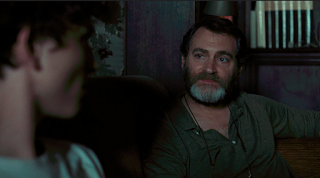
I was emotionally devastated by this film. I think Chalamet should win the Oscar that is most certainly going to Gary Oldman. At heart, my favorite genre is weepy romances, and this immediately became one of my all-time favorites. In terms of gay romance films, I thought it was better than Brokeback Mountain and Moonlight, and if Paul Thomas Anderson didn't exist, (and, perhaps, if the director hadn't cut away homophobically from the primary gay sex scene and if Hammer had EATEN THE DAMN PEACH) it would be my choice for Best Picture of the year. *****
1. Phantom Thread
I believe I said it all in my review: this is a film for the ages from the greatest director currently working in America. I loved it. I loved the production, the performances, the script, the costumes, and the music. I thought Daniel Day-Lewis was the most likable character ever and everyone else should stop chewing so loud. Jennifer Lawrence couldn't take more than 3 damn minutes. I can't wait to watch it again.
Now, please, enjoy the Academy Awards, hosted by the surprisingly competent Jimmy Kimmel, and see what the voters have decided. Perhaps Warren and Faye will return and announce that Judy Garland actually won the Oscar for A Star Is Born after all, sorry for the mix-up. One never knows. Just remember: no one knows what the greatest film of the year is the year after it is released. It is just educated guessing, politics, and cheap sentiment. Decades from now we'll have a better idea, and I think Phantom Thread will the winner in the eyes of history. *****
Ahhh, what a great year for movies.



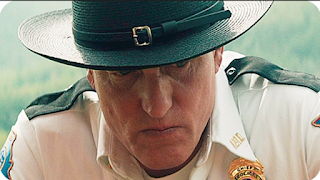



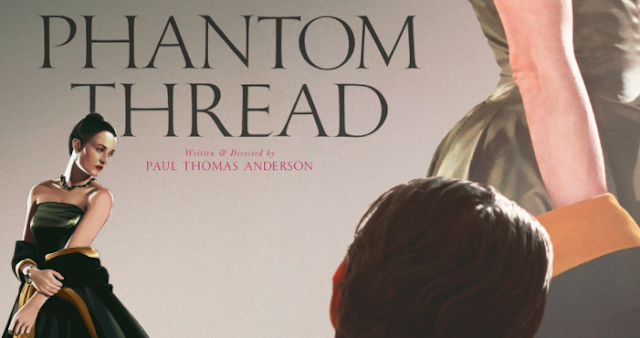
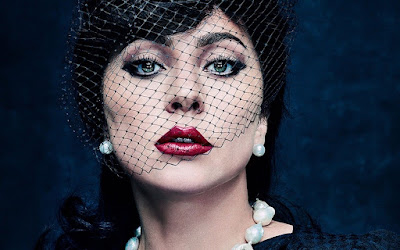
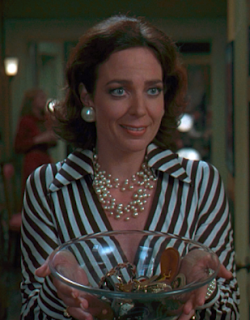
Comments
Post a Comment